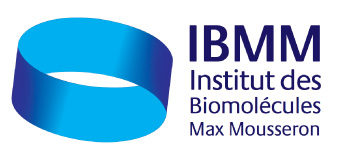PhD proposal – GREEN CHEMISTRY AND ENABLING TECHNOLOGIES team
Mechano-Activation of Molecular Nitrogen for Ammonia Synthesis
Ammonia (NH3) is the second most mass-produced molecule (180 MT/year) and a major intermediate for the production of chemicals and fertilizers. There is also an increasing interest on ammonia as a carbon-free fuel, and even as a hydrogen vector due to its physical properties. Despite its many applications, current industrial production is dominated by centralized large-scale thermocatalytic Haber-Bosch process where dinitrogen (N2) reacts with dihydrogen (H2) at high temperature (>450 °C) – high pressure (>150 bars) in the presence of a doubly promoted Fe-catalyst. Even if HB process currently consumes ~2% of the world’s total energy production, NH3 synthesis itself is energy efficient [1]. However, its synthesis requests fossil fuels to produce the needed H2 from steam reforming and water gas shift reactions, thus contributing to 1-2 % of the CO2 global emission every year [2]. Hence, the main challenge is to shift toward a carbon-free NH3 production to reduce the anthropogenic carbon footprint and limit the global warming to 2 °C as targeted by EU policies. This project is thus proposing to use solvent-free mechanochemistry,[3],[4] and more specifically ball-milling, to develop novel methodologies for mild ammonia production.[5]
The thesis will be carried out as part of the ANR-funded Mecammonia project, in collaboration between IBMM, UCCS (Unité de Catalyse et de Chimie du Solide, Lille) and IC2MP (Institut de chimie des milieux et matériaux de Poitiers). The student will work on the design of reactors adapted to the use of gas in ball-mills, then on their use in catalysis for ammonia production. The catalysts synthesized by the Lille team will be evaluated under different mechanochemical conditions. Of note, the Green Chemistry and Enabling Technologies team is located in the new Balard building on the CNRS Montpellier campus.
The Green Chemistry and Innovative Technologies team is located in the new Balard building on the CNRS Montpellier campus. The team is expert in mechanochemistry (ball milling and reactive extrusion), and has access to the physical measurements laboratory (LMP) of UAR2041 PAC Balard. The work will be carried out in close interaction with the Lille and Poitiers teams.
Profile: Candidates should have a background in chemistry, with a strong interest in green chemistry and catalysis. CAD (computer-aided design) skills will be appreciated.
Applications online at https://tinyurl.com/msvpazye (please, upload CV, cover letter, and Master’s grades)
References
[1] Ammonia Technology Roadmap, IEA 2021, https://iea.blob.core.windows.net/assets/6ee41bb9-8e81-4b64-8701-2acc064ff6e4/AmmoniaTechnologyRoadmap.pdf
[2] H. Hosono et al, Spiers Memorial Lecture: Catalytic activation of molecular nitrogen for green ammonia synthesis; Faraday Discuss., 2023 (243) 9.
[3] Gomolloń-Bel, F. Chem. Int. 2019, 41, 12−17.
[4] a) Howard, J. L.; Cao, Q.; Browne, D. L. Chem. Sci. 2018, 9, 3080−3094. b) Beillard, A.; Bantreil, X.; Métro, T. X.; Martinez, J.; Lamaty, F. Chem. Rev. 2019, 119, 7529−7609. c) Friscic, T.; Mottillo, C.; Titi, H. M. Angew. Chem., Int. Ed. 2020, 59, 1018−1029.
[5] Reichle, S.; Kang, L.; Demirbas, D.; Weidenthaler, C.; Felderhoff, M.; DeBeer, S.; Schüth, F. Mechanocatalytic Synthesis of Ammonia: State of the Catalyst During Reaction and Deactivation Pathway. Angew. Chem. Int. Ed. 2024, e202317038.
